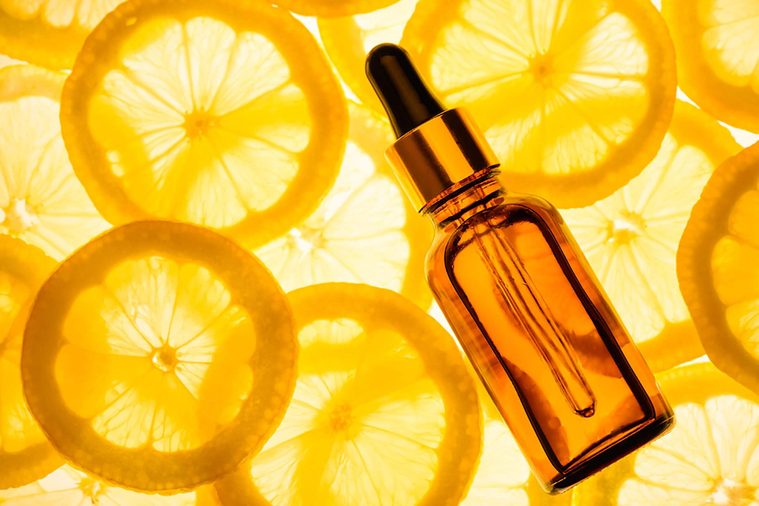
The lowdown on vitamin C
Vitamin C is a water-soluble vitamin that your body needs for numerous daily functions. Since your body doesn’t store it, developing a vitamin C deficiency is easier than you might expect: You need to consume C daily—preferably through foods rich in vitamin C. Most people think of oranges—and they are a great source—but many other fruits and vegetables are loaded with this nutrient, like strawberries, kiwi, papaya, broccoli, tomatoes, bell peppers, and cauliflower.
Adult women need at least 75mg of vitamin C daily, while adult men need at least 90mg, but some studies suggest that 500 to 1,000mg daily is optimal. You can easily get what you need from food: Broccoli and strawberries both have about 85mg vitamin C per cup, while a small orange provides just over 50mg. But for some people, supplements can help. These are the vitamin brands nutrition experts trust.
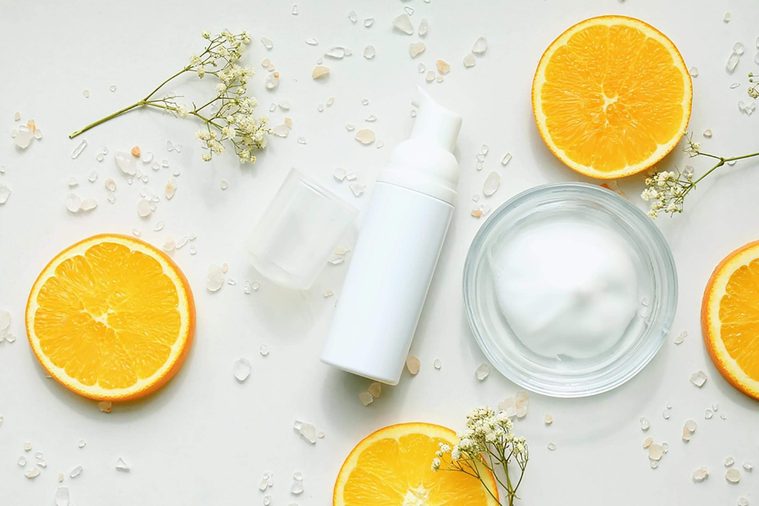
What does vitamin C do?
Vitamin C is necessary for tissue growth and repair all over your body. It helps in the production of collagen, which is used to make skin, blood vessels, cartilage, ligaments, and tendons. It also is needed for wound healing, iron absorption, and maintaining bone health. Vitamin C is a potent antioxidant, helping to reduce the damage caused by free radicals and thereby helping prevent the development of conditions like heart disease and cancer.
Severe vitamin C deficiency is a serious condition, known for centuries as the sometimes fatal disease scurvy. While scurvy is fairly uncommon now, evidence suggests that many people have low levels of vitamin C, which can be harmful to your health even if you’re not deficient by much. Here’s how your body is telling you you’re running low on other key vitamins.
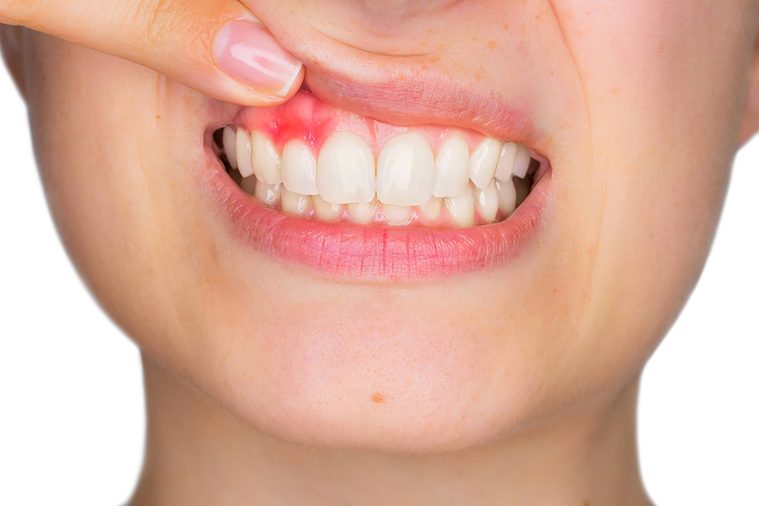
Bleeding and swollen gums
Your gums are made up partially of collagen, which is why they tend to be more sensitive when your vitamin C levels dip. They can bleed more, as well, and since vitamin C helps with wound healing, a deficiency means that bleeding gums won’t heal as quickly. Swollen gums are a result of inflammation, a process that vitamin C helps prevent as an antioxidant. Adequate vitamin C intake has been shown to be beneficial in improving gum health and reducing gum inflammation.

Frequent nosebleeds
Nosebleeds occur when the tiny blood vessels in the nose burst, so frequent nosebleeds are a sign of weak blood vessels in the nose. Since blood vessels are strengthened by collagen, having a vitamin C deficiency can result in weakened blood vessels, causing them to burst and create nosebleeds frequently. It’s easy to get vitamin C from citrus or these nine other foods that are even more jam-packed with C than an orange.

Dry, split hair
When your hair is healthy and shiny, it’s a good sign that you’re eating a balanced diet. When your ends are splitting and your hair is dry, you may have a vitamin C deficiency. Hair depends on collagen for strength and health: When you’re low on C your collagen production can pay the price, leading to weak and brittle hair that falls out easily. Find out what else your hair can tell you about nutrients you’re low on.
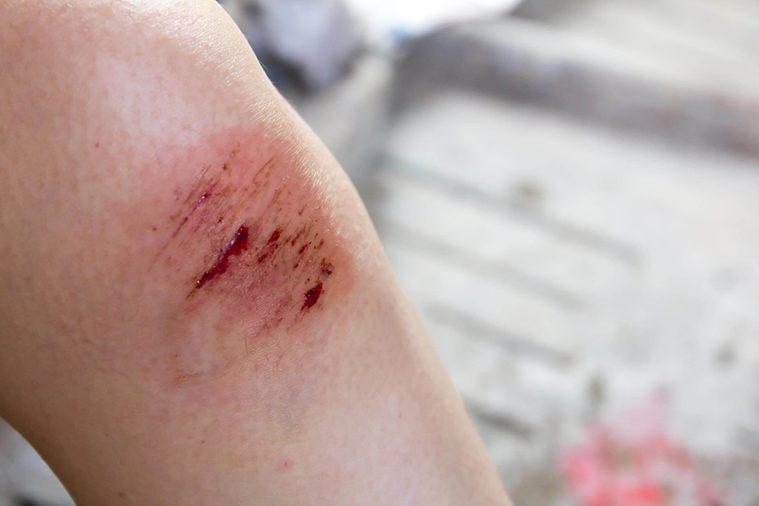
Slow wound healing
Your body’s healing mechanism is dependent, in part, on vitamin C: The immune response that works to repair wounds and fights infection relies on vitamin C. The nutrient also helps with the formation of collagen, which strengthens the scar tissue that forms over wounds. With a vitamin C deficiency, this process is less efficient, causing longer bleeding and slower healing. Don’t miss these other 15 ways vitamin C benefits your health.
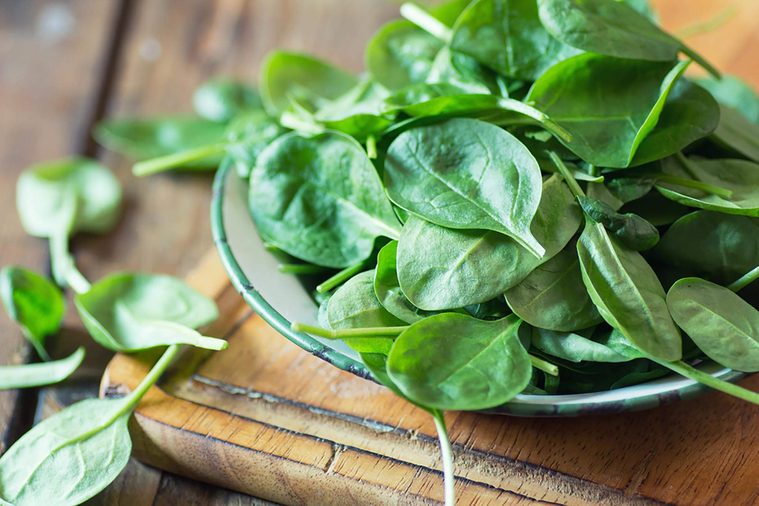
Iron deficiency
Your body absorbs two types of iron: heme and nonheme. Heme iron typically comes from animal sources and is easily absorbed, while nonheme iron comes from plant sources (like spinach, kale, broccoli, and more) and is poorly absorbed, which is why vegetarians should work these 11 iron-rich foods into their diet.
Vitamin C helps your body absorb nonheme iron more efficiently and has been shown to be a strong indicator of iron status; that’s why iron deficiencies often go hand in hand with vitamin C deficiencies. Getting enough vitamin C ensures that your body can make the most of iron-rich foods.
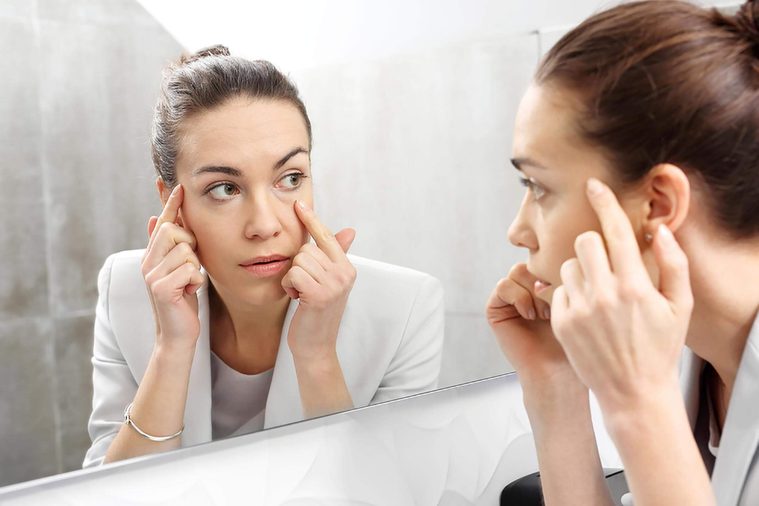
Dry, red, or wrinkled skin
Collagen keeps your skin supple and free from wrinkles, so it’s no surprise that a lack of vitamin C is associated with wrinkled skin—or that adequate amounts of vitamin C can keep your skin looking young. As an antioxidant, vitamin C reduces damage caused to the skin by UV light exposure, reducing your risk of sunburn. Higher intakes of vitamin C can also help keep your skin soft and supple.
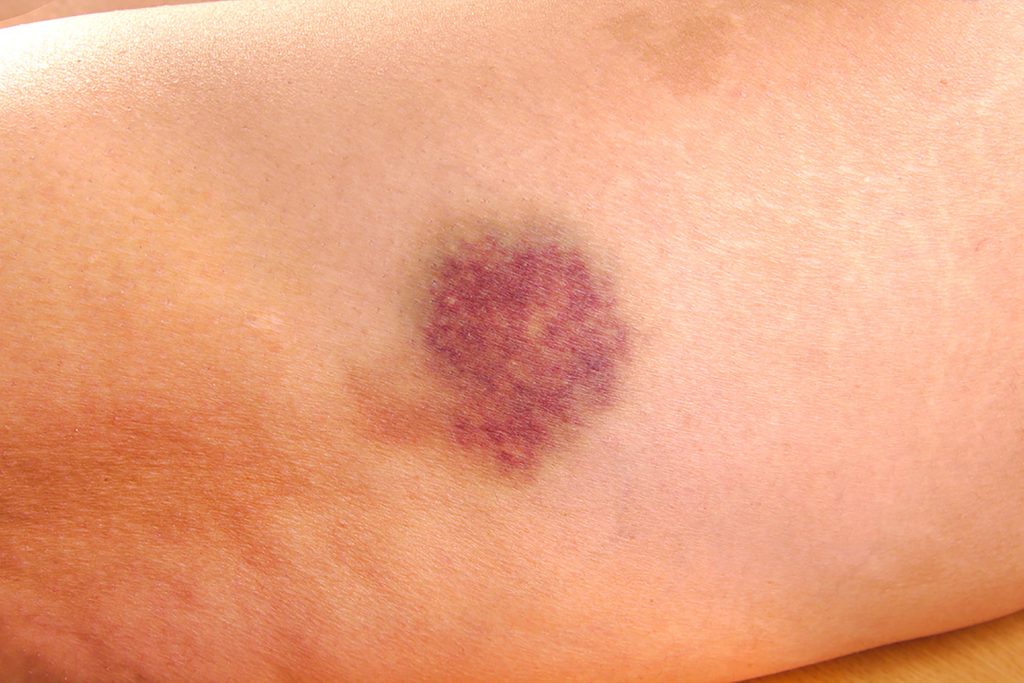
Easy bruising
When small blood vessels right under the surface of your skin burst, you end up with a bruise. If you bruise easily, it could be a sign that your blood vessel walls—which are made largely from collagen—are weak. Vitamin C helps strengthen your blood vessels by boosting collagen production so they don’t breakdown as easily. The color of your bruise may also indicate something about your health.

Frequent infections
Vitamin C helps stimulate the production of white blood cells that attack bacteria and viruses as part of your immune response. As an antioxidant, vitamin C also helps protect the health of immune cells so that they can work efficiently to prevent infections. Frequent wound infections or suffering from common infections like the flu, UTIs, or strep throat is an indication of a weakened immune system. You can boost your immunity by getting enough vitamin C.

Fatigue, moodiness
Fatigue is a symptom of many diseases and deficiencies, but when coupled with these other signs, it can help you spot a vitamin C deficiency. Vitamin C plays a key role in energy production and mood stabilization, so a lack of vitamin C can throw both your energy and mood out of balance. There is evidence that eating produce high in vitamin C can enhance overall mood, reduce fatigue, increase vigor, and reduce depression. Watch for these other signs you’re running low on key nutrients.

Weight gain
When fatigue from low vitamin C sets in, it’s also a sign that vitamin C’s support of energy production is flagging, and your metabolism suffers. When your metabolism slows, you’re more likely to start adding pounds. In addition to making sure you get enough vitamin C, try these 12 ways to boost metabolism.

Swollen, painful joints
Since the cartilage in your joints is largely made of collagen, low vitamin C levels can result in less padding between bones and achy joints. That paves the way for inflammation and swelling, and when your diet is lacking in vitamin C, your body has less ability to respond to that inflammation. Consuming enough vitamin C allows your body to produce the collagen it needs to have healthy, strong joints. Healthy collagen production is just one of many other benefits of vitamin C.
